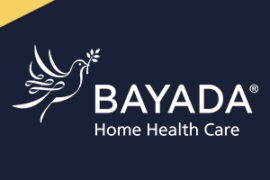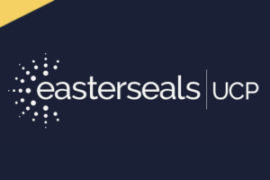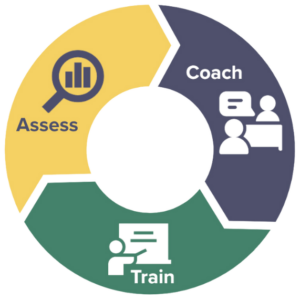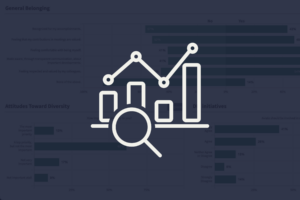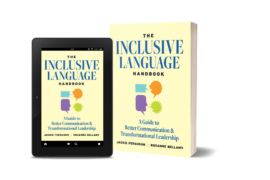In 2021, The Diversity Movement was lucky to partner with 28 organizations to conduct assessments and create organization-wide insights reports. One of the key themes that emerged across several industries was a concern from employees that their organization’s diversity, equity, and inclusion (DEI) efforts were performative rather than genuine and authentic.
After the murder of George Floyd, I remember seeing many organizations post DEI commitment statements. And while there were many organizations that have proven to be genuinely committed, others let their commitment crumble as 2020 and 2021 progressed, as this report from PR Week makes clear.
At the time, I served on the board for Raleigh City Farm, a non-profit urban farm with the mission to connect and nourish the central NC community through regenerative agriculture. I worked with our board members to craft a statement of commitments. We tied the statement to our mission and re-emphasized the values that the Farm has always upheld. We revisited this statement recently and all voted to formally adopt it, as we still feel that is true and authentic. Additionally, we have discussed DEI at every board meeting, reviewed and updated our recruiting and review policies, held a board member-specific DEI training session, and updated our values to include equity.
I share this story of my non-profit because it illustrates five key things I believe organizations can and should do to ensure their DEI initiatives are genuine and not performative.
1) Understand where you are as an organization.
Many clients ask me how they compare to other organizations. While these insights can be useful to an extent, it is much more important to understand where your organization stands on its own. How are your employees actually feeling? What do they think of your organization’s current state of diversity, equity, and inclusion ? As a leader, you may have a sense of this, but until you have actual data, it can be difficult to view the full picture.
We always recommend starting with a DEI assessment, which includes a survey, listening sessions, and review of existing processes, policies, and demographic data. This starting point allows you to gather quantitative and qualitative benchmarking data so that leaders and employees can gain a clear perspective about where they stand at the moment, and how they might consider moving forward.
In addition, all too often I see organizations that have demographic data at-hand but do not dive in deeply to understand it. For example, you may look at the general numbers regarding race and ethnicity of your employees, but do you drill into how those numbers shift when you consider individual contributors and frontline workers versus managers and leaders? Looking at the data in this way can help you identify where you actually stand as an organization and highlight some areas for improvement.
Basing your organization’s DEI journey on data and facts that are specific to your organization helps to ensure your initiatives are not only authentic but will also make an actual difference within your organization.
2) Tie your DEI initiatives to your mission, vision, and values… and show action, not just words.
As noted in my Raleigh City Farm example, we ensured that our commitment clearly aligned to our mission, vision, and values. We also showed action by describing what we had done in the past and what we were committed to doing in the future. This alignment and action showed clearly why DEI was important to us as a non-profit urban farm. We were not just reacting to a cultural moment but were–and continue to be–committed to sustainable change.
A word of caution here: If your organization does not have a clearly defined mission, vision, or values (what I like to call your “organization anchors”) or if employees do not buy into these, it is not a great practice to tie DEI to these. Rather, you should start by spending some time developing your organization anchors, and integrate DEI as you do so.
As a best practice, once you create your commitment and include the specific actions you will take, it is important to share them both internally with your employees and externally (e.g., on your website). Be sure to include links from your Careers page, as prospective employees are almost always looking for DEI commitments when they are researching employers. In fact, according to a study from Deloitte, 80% of all job seekers say that inclusion is important when they’re choosing where to work. It is also important to revisit these pages on a regular basis and update as necessary, such as when you have accomplishments to celebrate.
BAYADA Home Health Care (BAYADA) and BMC have great examples of their commitments and actions on their websites. In the case of BAYADA, their CEO sent a letter to employees, clients, and partners following the murder of George Floyd in 2020. He closely tied his message and commitment to the organization’s mission and values (what they call The BAYADA Way) and then, BAYADA did the work, following this letter with substantive action. In short, the letter was not performative or inauthentic specifically because it was followed by thoughtful and deliberate action.
3) Create a clear DEI action plan and regularly review it.
Once you have completed an assessment and created your commitment to DEI (your organization’s why), it is imperative to treat your DEI initiatives like other business initiatives. Create a DEI action plan that includes specific goals with timelines, accountabilities, and measurements. And be sure to review progress against these goals (and report your progress) on a regular basis—just as you would do for financial or other business goals.
It is even better when you can embed or connect your DEI initiatives to your organization’s strategic plan. By having clear initiatives that are rooted in data and reviewed regularly, you will ensure that employees within the organization and external stakeholders see authentic action and not just performance.
4) Get buy-in from all leaders and employees.
It is not solely the job of the Chief Diversity Officer, DEI Office, or CEO to ensure that DEI initiatives are moving forward and are authentic. It is important for all leaders to understand the importance and value of DEI to their organization and champion this value amongst employees internally and with clients and other stakeholders externally. At Raleigh City Farm, I certainly have championed this work, given that I am an employee of The Diversity Movement; however, I also know that our commitment is truly supported by our Executive Director, Farm Manager, and all board members.
In addition, it’s important to open the door for all employees to share. One way to do that is through the listening sessions and surveys that I mentioned earlier, but you can also do this through one-on-one meetings, small group discussions, an anonymous feedback form, or numerous other methods.
And yes, especially if you’re still early in your DEI journey as an organization, you should be prepared to hear that your actions are still being perceived as performative, or that they are not enough, while on the other end of the spectrum, you may hear from employees who do not yet see the value of DEI. Remember, it is the hallmark of an authentically inclusive organization to hear all perspectives.
5) Don’t turn DEI into an annual “pep rally” event.
Our VP of Business Strategy, Shelley Willingham, always emphasizes that organizations cannot have just a once-a-year focus on DEI. Attention to DEI needs to be embedded within the organization throughout the year. Creating a clear action plan as noted above will help with this, but it is also important to emphasize ongoing learning and incorporate learning into the flow of work. At The Diversity Movement, we like to call them “Diversity Minutes”. I promise that it is easier than you think to get started!
A few final thoughts
DEI initiatives take time. It may take a while for employees to believe they are authentic and not just performative. Do not get discouraged. Be sure to celebrate the impact that your DEI initiatives have had on your employees and clients… even if they may seem small.
And remember, we are always here to help you ensure that your DEI initiatives are genuine and impactful. We would be happy to partner with you to conduct an assessment, write an authentic DEI commitment statement, create a DEI action plan, or offer training sessions and one-on-one mentoring to get leaders and employees on board with your DEI initiatives.
